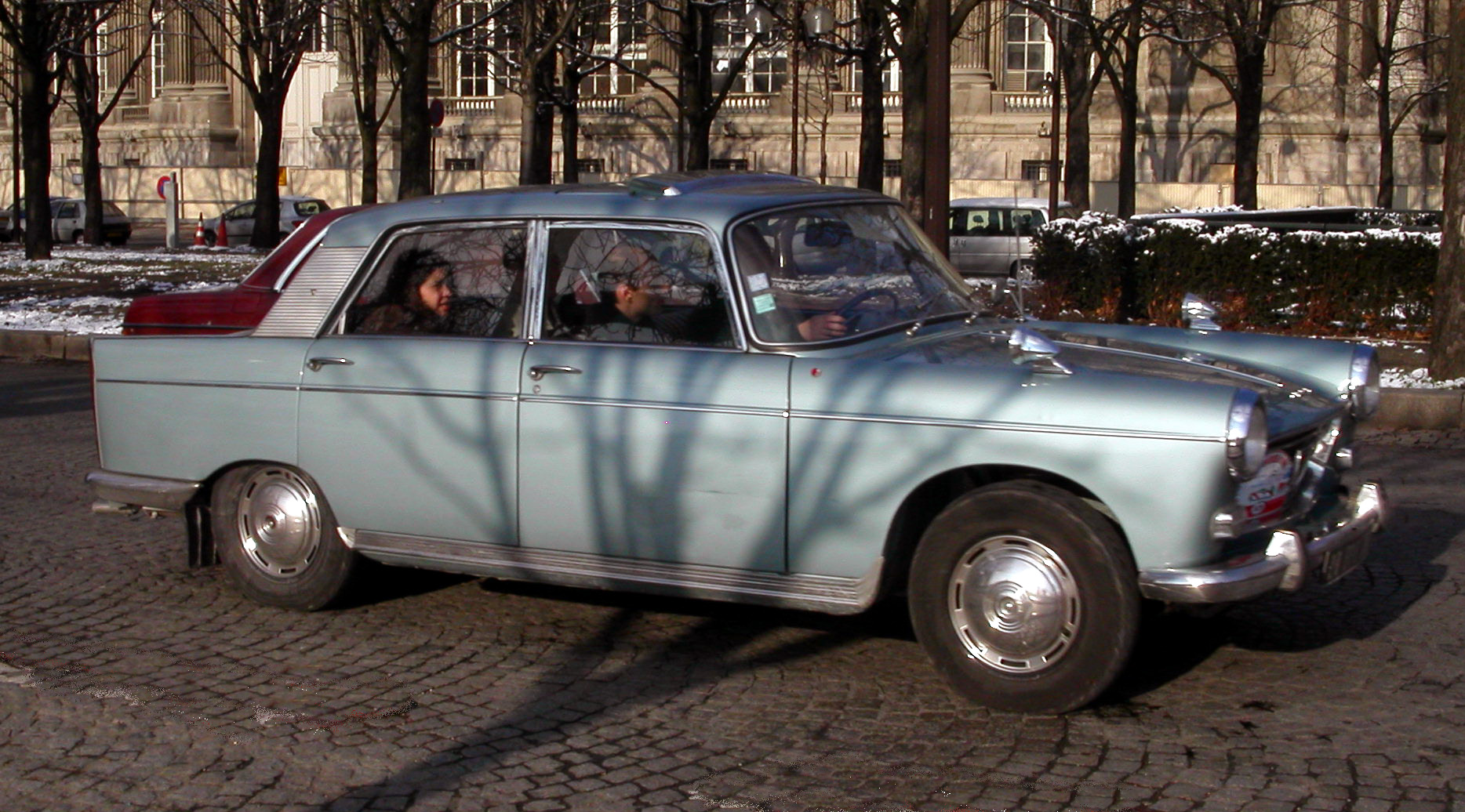
Peugeot 404
It was nice to have MLK off but it really meant condensing all the events and business and studying that we had to do in a limited amount of time. Some of my classmates are doing introductory pharmacy practice experiences, like following around our past Clinical Pharmacy professor, Kathy Dennehi, while taking medical histories/ screening for immunization eligibility. It is apparently a pilot program that was jumpstarted so that UCSF Pharmacy School could claim that at least 5% of its curriculum is dedicated to IPPE's. They can use this to leverage with the Board of Pharmacy to get reaccredited. I think that it is a great idea to have something in the pharm.D. program to introduce students to applying these skills that they teach you in school about patient assessment and counseling. From my experience in retail, you will eventually learn some patient counseling, but IPPE's can give you a much easier time during rotations and not have to climb such a rough transition from textbooks and lecture notes to real life therapeutics and patient interaction.
We took our first midterm today and it was not too bad. I actually had a harder version of biochemistry in undergrad and this class was more emphasized on getting you to understand the clinical correlate of biochemistry instead of learning every annoying enzyme for those who want to become lab scientists. Our professor is really great; her name is Tracy Fulton. One class that I really enjoyed was the clinical correlate taught by our Dean, Mary Anne Koda Kimble in conjunction with Tracy Fulton. She had a mock interview with a diabetes patient while we learned about insulin and glucagon control of metabolism. One interesting point was on sulfonylureas, which increase insulin secretion from pancreatic beta cells by blocking membrane bound potassium leak channels. She even went on to explain how diabetes patients often get foot ulcers, from poor circulation and poorly functioning clotting factors.
APhA had its first legislative committee meeting which assigned us first year members our own projects towards promoting the profession.
My second visit as a volunteer to Laguna Honda Hospital was much longer than the first and incredibly worthwhile. I walked in to the main hall feeling like a thousand eyes upon me, knowing that I was out of place in a room of elderly patients with dimentia. I was silent as he played Bingo for about half an hour because I was afraid if he could speak coherently, percieve and be capable of interacting with me, or even have a shred of short term memory. To my surprise, he asked me very clearly what my name was and proceeded to enter a perfectly normal conversation. He was able to respond and converse with me more capablely than many of my contemporaries.
So apparently, Robert was first admitted into LHH when he overdosed on alcohol. Ever since he's been residing there. In the past, he recieved his first dirtbike at the age of 11 and rode on racetracks and jumps while attending a baptist church. Throughout his life, he has traveled the entire country. Born in Chicago, he was raised on a farm in Arkansas by Swedish and Irish parents. He became a professional motorcycle racer and came in 3rd nationally in 1968. Behind the public image, many bikers spent their play money to shoot up on heroine and coke, and he was not exception. Then he moved to Riverside as a car mechanic for peugeot. Check out their website. It's a beautiful european car. After splitting with his ex-wife, he hitchhiked to New Orleans. I'm not sure about what he did in New Orleans but eventually he made his way to San Francisco. He tells me that his Swedish father, a retired stockbroker, is still alive somewhere in America.
So hearing him recall his life as a hyperkinetic zigzagging path, transcending state lines, dotted with 151 proof rum, irish carbombs, and car girls. It was a perfect description of an existence that epitomized the American ideal. Living with the freedom to be susceptible to sin, ut have enough of a safety net to recover, roam but always have ties with loved ones in the past, and connect with the land but not to be tied down to it. And I think it is such an important concept to travel in order to understand America but not objectify it. His middle class values reminded me of my own father. I haven't heard anyone say the word America so many times with such gravity and with such respect that only the wise can grace upon it. It was not a conversation of problem solving or thesis writing, but it was the most intellectually stimulating conversation that I have had in a while, much moreso than with classmates whom have master's and all sorts of degrees and scholarships under their belts.
His gaze started to drift and his attention dissipated as he felt a craving for a cigarrette. He bummed one off of another resident and we stepped outside so he could smoke it. He began to repeat his entire story to me as if I had never heard it before. Then I suddenly got the sense that he was not as aware of me as I was of him; the feeling you get when the person you are trying to interact with does not remember you hurts. I was subconsciously assessing his disorder in order to cover up my own emotions. He had dimentia.
1 comment:
this was the most touching entry, beautifully written. :)
Post a Comment